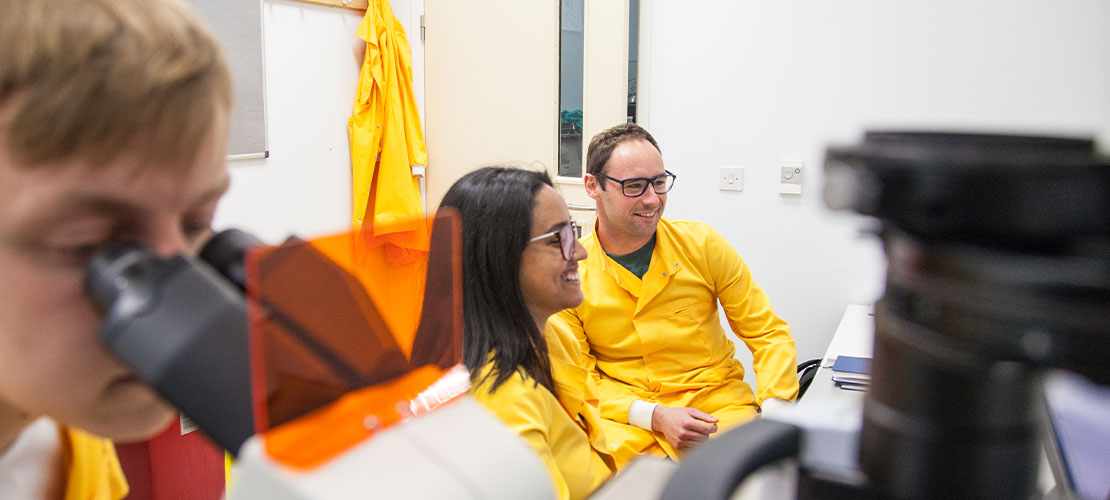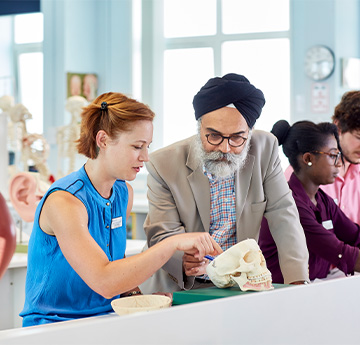Staff at the Faculty of Medicine, Health and Life Science make up the three constituent schools of the Faculty. Through interdisciplinary and interprofessional learning, research and innovation our staff drive us, enabling us to be consistently rated as a top UK provider of health professional and life sciences education and training. Through our world class staff we will maintain our international reputation for excellent research and innovation; and deliver real improvements in health wellbeing and wealth for Wales and the World.
Our Staff making a difference to people’s lives.

Faculty Leadership Team
Heidi Waddington
Director of Faculty Operations

Associate Deans and Heads of Schools
- Associate Dean, Research, Innovation and Impact (RII): Professor Gareth Jenkins
- Associate Dean, Education: Dr Stephen Johnston
- Associate Dean, International: Professor Lisa Wallace
- Head of School - Health & Social Care: Professor Jayne Cutter
- Head of School - Medicine: Professor Cathy Thornton
- Head of School - Psychology: Professor Ian Walker





